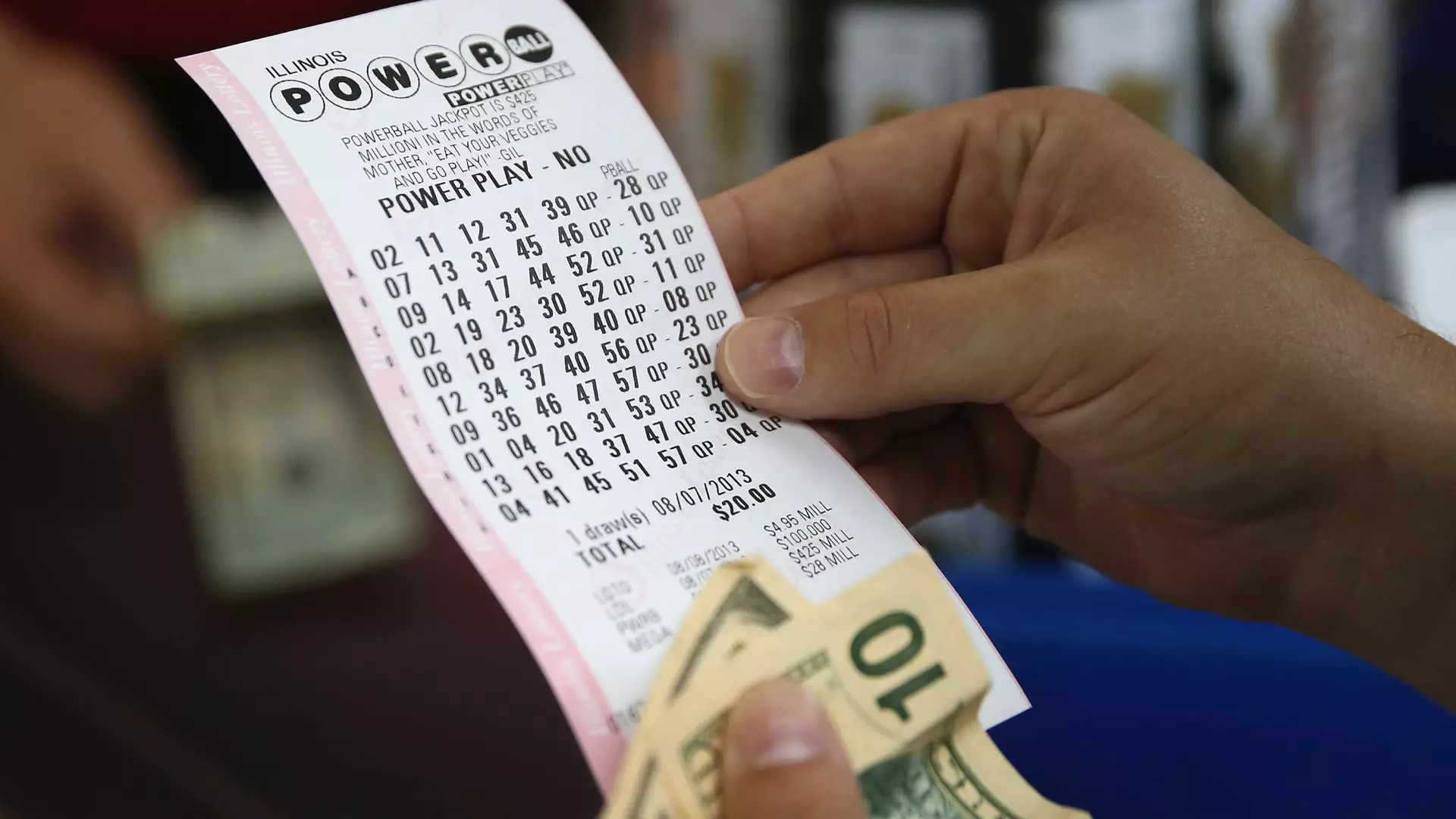Massive lottery jackpots like the recent $1.787 billion Powerball are often celebrated as once-in-a-lifetime opportunities. The media glamorizes the idea of sudden riches, tempting everyday people to dream of a life transformed overnight. But behind this façade lies a brutal reality: winning enormous sums comes with profound financial and personal complexities that most winners are unprepared for. The promise of wealth can obscure the harsh truth that, if not managed wisely, it can lead to financial ruin rather than security. The allure of quick riches often overshadows the importance of financial literacy, sound planning, and realistic understanding of taxation, creating a trap for the unwary.
The Tax Burden: A Wealth Killer Hidden in Plain Sight
One of the most underappreciated aspects of lottery winnings is the crushing tax obligation tied to such windfalls. A $1.787 billion prize might seem astronomical, but in reality, what winners take home is significantly reduced by taxes—federal, state, and sometimes local. The mandatory 24% federal withholding on large prizes is merely the tip of the iceberg. For high-income winners, the top federal income tax bracket—currently 37% in 2025—eats into their potential earnings even further.
This is not merely a theoretical squeeze; for many, it’s a literal financial hemorrhage. Winners who opt for the lump sum payment of around $410 million must already contend with nearly $100 million in federal taxes, and the remainder of their prize is subject to additional taxes, which can wipe out a significant portion of their wealth. These figures are compounded in states like Missouri, where additional state taxes—up to 4.7%—may further diminish their haul, potentially costing winners more than $16 million in state taxes alone. Conversely, winning in Texas, which does not impose state income tax, might seem like a societal benefit, but it also exposes winners to the reality that federal taxes alone will still severely cut into their fortune.
It’s critical to recognize that these taxes aren’t just minor deductions; they are major financial hurdles that turn what seems like a once-in-a-lifetime gift into a gradual erosion of wealth. The illusion that these winnings are untouchable is naive—tax authorities are relentless, and their appetite is voracious.
The Temptation of the Lump Sum Vs. Annuity
A key decision facing lottery winners is whether to accept a one-time lump sum payment or an annuity that pays out over 30 years, with escalating payments. The allure of immediate access to millions is tempting, yet this choice requires careful consideration. Financial experts often argue that taking the lump sum, which might be around $410 million, is a mistake for many. Without the proper infrastructure, financial discipline, and expertise, large sums can dissipate rapidly—especially when facing a barrage of taxes, fees, and poor investment choices.
The annuity option, offering a gradually increasing payment schedule over decades, provides a measure of stability. But most winners prefer the instant gratification of a large check, overlooked the long-term risks and tax implications. The problem is that even with the annuity, the total value is still taxed, and the winners risk burning through their wealth much quicker than anticipated if they are unprepared or reckless.
The Broader Impact: Power, Privilege, and Responsibility
Lottery winners occupy a peculiar position in society: suddenly wealthy, yet often unprepared to handle power responsibly. Their newfound wealth can transform personal relationships and invite unwanted attention—ranging from frenzied media coverage to predatory exploitation. Wealthy individuals, especially those not grounded in financial principles, become easy targets for scams, bad investments, and costly legal battles.
Furthermore, the staggering size of modern jackpots amplifies the social disparity that liberal-minded centers of thought critique—while the rich get richer, many ordinary workers struggle to meet their basic needs. Lottery prizes can seem like a form of redistribution, but instead, they often perpetuate societal inequalities. Without appropriate regulations, tax reforms, and public awareness about the true costs of winning, these jackpots risk becoming wealth traps rather than instruments of opportunity.
In the end, the real question is whether governments and society are doing enough to prepare people for such life-altering wins. From education about tax obligations to financial planning and ethical responsibility, there is a pressing need to address the systemic issues that make sudden wealth a potentially destructive force rather than a blessing. Wealth, if not managed wisely, can be a liability—a paradox that those chasing dreams of quick money often overlook.

